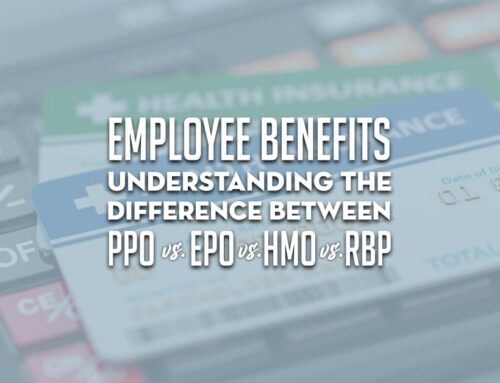As someone starting a business, one of the decisions you will need to make is what sort of health insurance you plan to offer for your employees. In most businesses in the United States, full-time workers expect to have health insurance benefits as part of their employment package. As an employer, it can help you attract and retain top talent.
According to the Affordable Care Act, any business with more than 50 employees is required to offer health insurance. This is part of a type of legislation called an “Employer Mandate.” Even if you don’t employ that many workers, providing health insurance is still a good idea for many small businesses.
Health benefits cover a variety of items. In short, these are services covered by an insurance plan. It can include the services of physicians, prescription drug coverage, emergency hospital care, and childbirth and pregnancy care. This article will explain the importance of health insurance for startups and how to get inexpensive plans for coverage.
Important Facts About Health Insurance for Startup Founders
There are many pros to health insurance for startups. The largest is that top talent will expect it. It can play a huge role in whether someone stays at their job or moves on. At the same time, healthcare can be expensive, so you might want to think about whether you need to offer it at this point.
Below, we’ll share some facts about health insurance and startups so you can make an educated decision.
Early Is Better Than Late
Based on the 2022 SHRM Employee Benefits Survey, the most important benefit an organization can provide for workers is health insurance. This is followed by things like leave and retirement benefits. It doesn’t matter how big the company is, this still applies.
Many businesses are more established than startups, which means they have competitive salaries and benefits as well as better job security. Startups need to attract the best workers and offering health insurance is one of the best ways to do that. Providing it from day one gives you the best chance of thriving and growing in the future.
The best thing you can do is build health insurance into your business plan. Be aware of what it costs and make sure it’s included in your budget. Prioritizing health insurance is something every startup should do.
Consider All Insurance Options
With self-funded health insurance, you pay for all of the healthcare that your workers need. This can be less pricy than fully-funded health insurance. The latter means you need to pay a large premium every month even if nobody has used the plan.
However, self-funding is also challenging to budget and can be risky. For instance, if several employees get very sick at once, you need to pay for all of the services they require.
Level-funded plans are another option that is less expensive while having predictable payments. A certain amount is paid to the healthcare of employees and if claims are lower, you’ll get a credit or a refund. Stop-loss insurance covers overage on the other side of things.
Everyone is different and will need to consider the pros and cons of the health insurance they choose. Doing the work to understand the different types and choosing the one that best fits your needs can save time and money in the long run.
Wellness Benefits Are Useful
In addition to providing health insurance as a startup founder, it’s also worth considering wellness benefits. There are two major benefits to doing this.
First, it makes your compensation package a whole lot more attractive to current and prospective employees. Offering no- and low-cost methods to care for workers’ physical and mental well-being can improve their quality of life. It also happens to drive better employee retention.
Second, it can lead to lower healthcare costs on a long-term basis. If your employees have resources to improve their wellness, it can cause them to be healthier. In many cases, this will lead to less need for the care associated with health insurance in the first place.
Questions to Ask About Health Insurance
Before you move forward to choose and set up benefits for your workers, there are a few things you need to ask yourself. Below are some of the questions to consider at this point:
- What type of broker or specific broker should be used to access employee health insurance plans?
- What health insurance plans should you provide?
- What other forms of insurance will you offer?
- How much of the premiums for insurance will be covered by the employer on behalf of employees?
- How much of the premiums for dependents (such as domestic partners, spouses, and children) will be covered by the employer on behalf of employees?
Once you have an answer to all or most of these questions, it’s time to search for the right broker to provide you with health insurance plans. Make sure you research your options carefully and ensure they meet your needs before you move forward.
Be aware of which healthcare providers are operating in your region, as well as what plan costs, deductibles, and co-payments will be. Look into tiered plans that have multiple offerings and always compare plans and costs from companies through quotes.
It’s also worth considering other insurance common for startups, such as vision and dental insurance. If you want to be known for a generous benefits package, life insurance can also be an addition to the compensation package. It all comes down to what works for you, your employees, and the budget.
Final Thoughts
Working with a health insurance broker may be a good choice if you are running a startup business. However, make sure you do your homework before you make a final decision. The best broker is one that will give you excellent benefits and good coverage for a reasonable price.
At Abbot Benefits Group, we provide exactly what you desire. We will help you through the process of finding the ideal plan for your unique business, employees, and self. You can reach out to us now to learn more about your coverage options and choose a plan that meets your needs.





